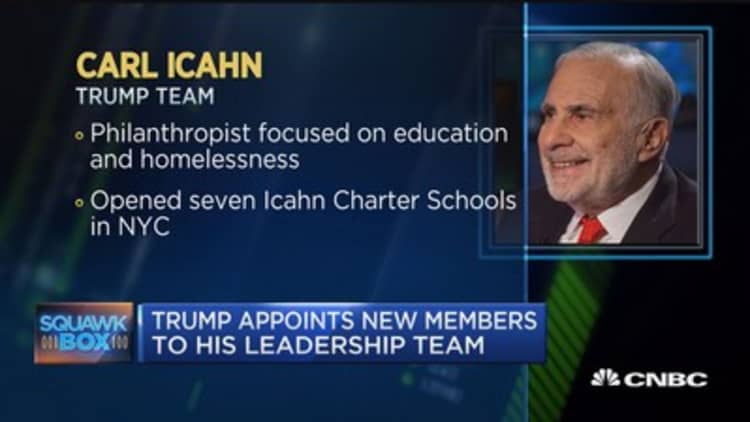
Wall Street has always struggled to understand Washington, flummoxed by its Byzantine procedures and arcane rituals.
But even though New York is sending one of its most powerful businessmen to Washington as president in 2017, Wall Street may be misunderstanding the new Trump team, too, a person familiar with the Trump transition told CNBC.
This person argues that Wall Street is expecting a typical Republican administration, in which lower taxes and slashed regulations give a huge boost to corporate chieftains. But, the person said, that's only part of what Wall Street should expect from Trump. The new president instead will be turning a generation of Republican orthodoxy inside out, the source said.
"Bowing at the altar of free markets is out," the person said. "It's not a traditional Republican government. We have a lot of people whose religion is free markets, but this will be a principle of America First. If you're making products and doing things that help the country, great. But crony capitalists are going to be on the dart board."
Of course, this is the view of just one individual, but may offer a glimpse into the thinking at Mar-a-Lago these days.
So how should corporate America process who wins and who loses in the Trump era? The person offered this gut check for corporate leaders: "If you secretly think, as you go to sleep at night, that you may be a crony capitalist, then you should not sleep well. Republicans have traditionally defended companies that offshore jobs, do inversions, move their headquarters to Dublin and stuff like that, because people like free markets. But [Trump advisor Stephen] Bannon is going to say this is where we need to stand up and fight for the country and for the guys in the red hats in Michigan."
And that's where, this person says, Trump's willingness to single out specific companies on Twitter and in personal meetings comes into play. On Wednesday, for example, Trump met with the CEOs of Boeing and Lockheed Martin in an effort to lower costs of specific defense programs.
"When he calls out Boeing, he's signaling to the market, and to business and to labor that I'm going to put the American voter first," the person said.
It's a much different approach to governing than either Republicans or Democrats have taken in recent decades, the person said. "We haven't had a president in a long time whose first question is 'why?' 'Why do we need a new Air Force One?' He's not of the establishment, and he was elected by people who said, 'We want you, Mr. Trump, to go to D.C. and punch it in the throat.' It's a different way of thinking. I think on Wall Street, there is such an information deficit about how things work."


